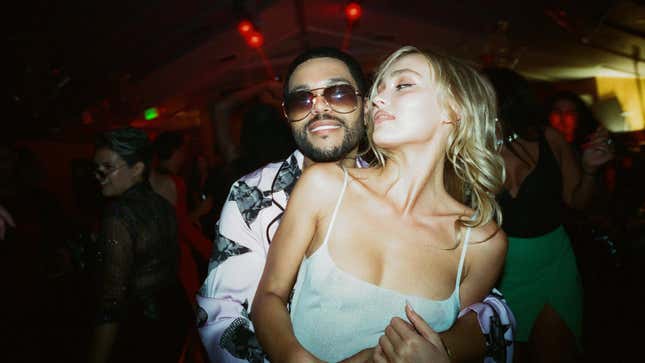‘The Idol’ Isn’t Nearly As Cool As It Thinks It Is
The controversial HBO series is a lazy, lackluster depiction of a vulnerable pop star written by three men.
EntertainmentTV

It’s fitting that the first 58 seconds of HBO’s The Idol are a close shot of its half-naked protagonist, Jocelyn (Lily-Rose Depp), being told what to do by a photographer off-camera: “Give me some innocence. And some doe-eyed looks,” he instructs. “Now mischievous. Ok, pure sex now. Give me vulnerable.”
From the outset, the mythos of the series is obvious: Young women like Jocelyn—a pop star fresh off a mental breakdown and a hospital stay—are empowered to be sad, sexy, shy, or sly. Anything below surface level is simply unsellable. Never mind that collective consciousness and criticism of celebrity culture has evolved, nor the fact that one needn’t a fictionalized depiction of a young famous woman to reach the conclusion that Hollywood is rife with vampiric sycophants eager for newer, sexier, weaker prey to suck dry and discard after their first stint in rehab because there’s a wealth of living, breathing examples. No, The Idol is the shined-up shlock we’re getting because three men of meager talent managed to convince a room full of suits at HBO that audiences wanted yet another cautionary tale about what the industry (and anyone directly adjacent to it) does to women.
Now, let me be clear: It’s not that people don’t have a desire for these narratives. It’s that they want them made well, which is to say, not by Sam Levinson or The Weeknd (née Abel Tesfaye). The show also credits a third creator, Reza Fahim, an Iranian refugee who worked as a nightlife producer in L.A. until he quit in 2017 to pursue writing. Apart from The Idol, he has one other known writing credit: an untitled project that also involves Tesfaye.
-

-

-

-

-

-

-

-

-

-

-

-

-

-

-

-

-

-

-

-

-

-

-

-

-

-

-

-

-

-

-

-

-

-

-

-

-

-

-

-








































